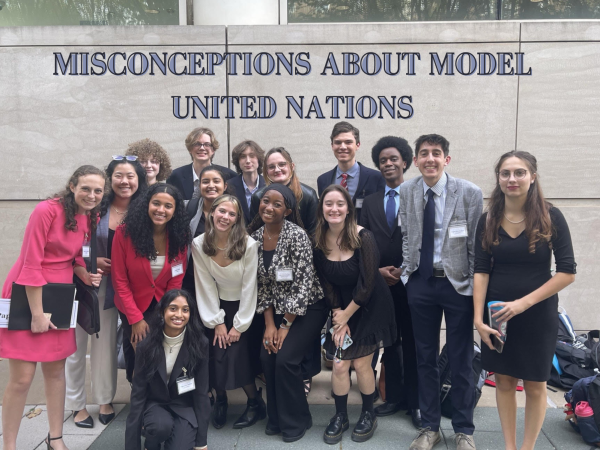New Spider-Man, same representation: What does Hollywood shy away from POC or females in superhero franchises?
March 23, 2015
Sony’s decision to finally reunite Spider-Man and the rest of the Marvel Cinematic Universe (MCU) prompted a massive internet call for a new spin on Spider-Man. And although the current generation familiarizes Peter Parker with Spider-Man, multiple characters could replace the current web-slinger.
The fandom calls for a character switch from Peter Parker to Miles Morales, a boy of black and hispanic descent. After five separate movies already narrating Peter Parker’s story, continuing this storyline feels redundant, especially since Marvel and Sony established that the recent The Amazing Spider-Man movies do not merge with the MCU. Movie-goers deserve a new story.
The issue sits in the matter of representation. No matter how fans may feel about Peter Parker, equal representation in the media proves crucial. Children perceive everything, noticing factors like race and their representation in the press. After all, black and hispanic children buy toys too, and the MCU already received positive feedback when The Falcon joined the MCU in Captain America: Winter Soldier last year. Miles Morales, representing one of the most well-known superheroes, would give children of color a superhero that looks like them, in the same way that The Falcon did.
This new Spider-Man movie’s expected release bumps Thor: Ragnarok back to November 3, 2017, in turn moving Black Panther to July 6, 2018, and consequently pushing Captain Marvel to November 2, 2018. This means fans will see yet another Spider-Man movie (the sixth since 2002) before Marvel Studios puts out films involving a woman or person of color (POC) as the lead, an act consciously decided by the studio. Rebooting the Spider-Man franchise even while the most recent version never technically finished leads fans to speculate the reason behind it must involve a massive character change.
Frankly, the idea of yet another Peter Parker movie disinterests me more than anything. Narratively speaking, Miles Morales as Spider-Man would emulate a clear reason to the non-comic book reading audiences for a Spider-Man reboot: a new character taking up the mantle with a new story to tell. More importantly, it would put a Black-Latino character as the lead of a new superhero franchise.
More pressing is Marvel Studios’ announcement of pushing back Black Panther and Captain Marvel. Marvel Studios possesses a diversity problem. A white male leads the title character of every Marvel Studios film so far. Their movies remain well-made and entertaining. However, the studio will release a whopping sixteen movies led by white males before making a film led by a POC or a woman. Guardians of the Galaxy made about $775 million despite the talking raccoon, walking tree, and other characters no one outside the comics-reading community knew existed. If a movie like that performs so well, no excuse stands as to why a Black Widow film “would not work.” Miles Morales taking the screen as Spider-Man may prove to Marvel that excuses remain exactly that, and should force the studio to create more diverse films.

















